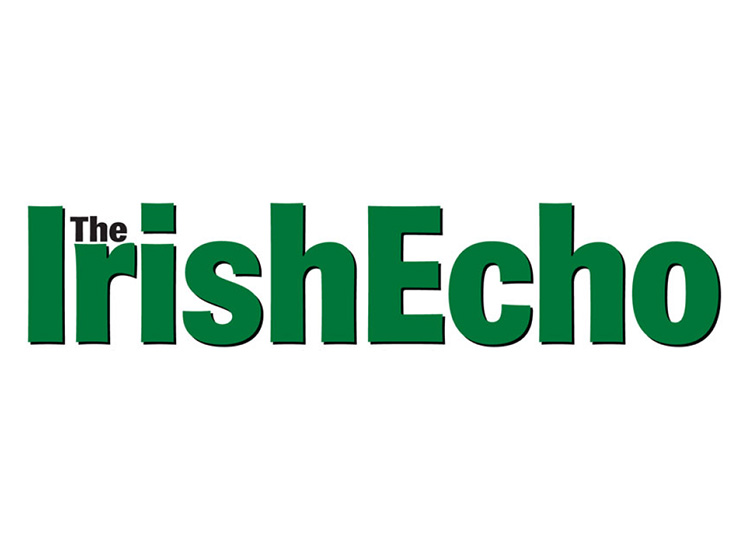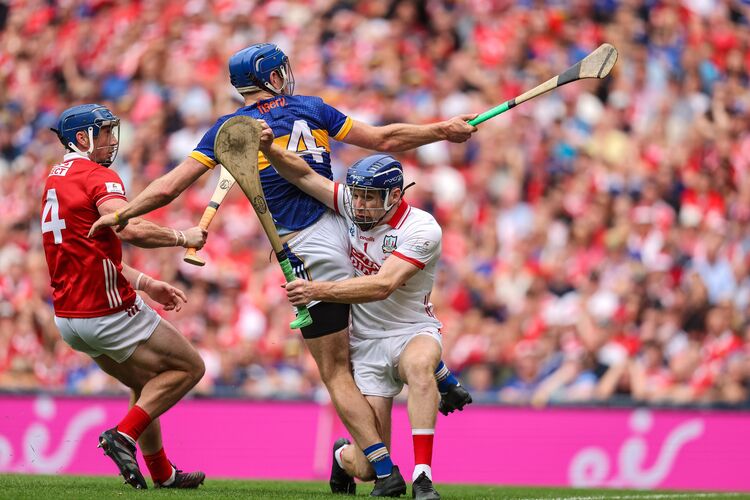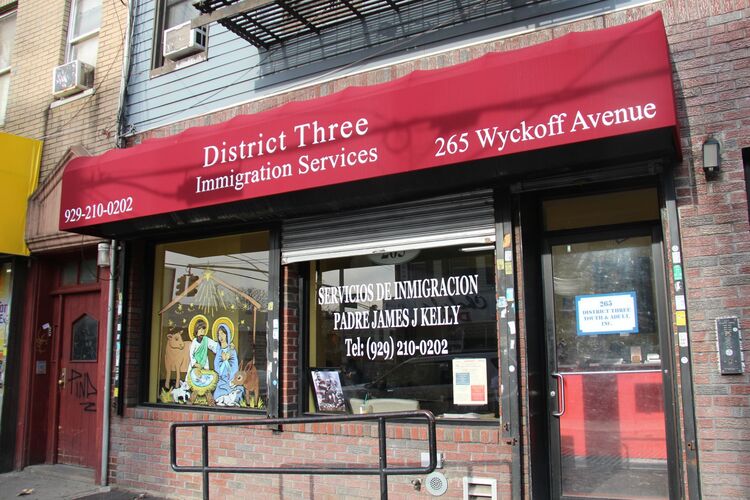Zoom drawing by Alice Bentley.
Traditional Music / By Daniel Neely
Some weeks back, Dublin-based singer, composer, and producer Macdara Yeates reached out, looking to talk about a traditional singing session he’s running through the Séamus Ennis Arts Centre. It’s gone online, he told me, and as I read his arguments about its advantages, I was throughly intrigued. Online sessions are challenging at best for tune players and there are few that have figured it out. (Caitlin Warbelow’s “Mary O’s” session would perhaps be the great exception to this rule.) Clearly, there was something else going on here.
Yeates, who, among many other things, is known for things like his work with the band Skipper’s Alley, might well end up better known for the yeoman’s work he’s done in Dublin’s traditional singing scene. For example, he was a founding member of “The Night Before Larry Got Stretched” a singing collective established in 2012 that he described as “a proving ground, maybe, for young folk singers in Dublin.” It was where groups like Lankum, Ye Vagabonds, Landless, and others essentially got their start.
Dublin has had loads of traditional singers clubs, with An Góilín (www.goilin.com) the longest-lived and best known. But what made the “Larry” collective noteworthy was its emphasis on youth. “It was set up by people in their 20s and 30s who were all really interested in traditional singing but who didn’t know others were out there. Like, I remember seeing Ruth Clinton from Landless at a singing session a bit outside the city, and then I got to know Ian and Daragh Lynch [from Lankum] in the same sort of way – we were all alone, tangentially circling the singing scene. Eventually, we all became aware of one another and someone had the idea that we could all meet together. It started in disorganized fashion in the back room of the Cobblestone once a month. Then, maybe two or three years into it, we heard that two brothers from Carlow – Ye Vagabonds – had moved up to Dublin, and they were doing a session around the corner from where we were, and we were, like, ‘wait, there are more young people singing?’”
“Larry” eventually breathed new life into Dublin’s traditional singing landscape. “It was called a ‘young singers session’ from the beginning, but no one had a thought of turning old people away. To the contrary. We put it together as an all-ages space focused on disseminating traditional song among young people, curated and built by young people, but it was tailored to what the younger crowd was looking for out of an evening’s singing.”

Some “Larriers” and fans in Dublin in pre-Covid times. PHOTO BY BRIAN FLANAGAN
These days, “Larriers” (which is how they refer to themselves) are more organized. Each March, many of them attend the Inishowen International Folk Song and Ballad Seminar (inishowensinging.ie). “Its the highlight of every calendar year for the traditional singing world,” Yeates told me. “It’s a weekend of absolute chaos, debauchery, and traditional singing.” However, this year’s event, like so, so many others, was cancelled due to covid-19. “Without anyplace to go, there was immediately a void,” he reasoned. “Like, what the hell are we going to do now?”
But this is why Yeates finds himself at another inflection point for traditional Irish singing. “So, a friend of mine, Michael Steen from Portland, Oregon, who I met at Inishowen a year ago, got in touch and said ‘why don’t we do something on Zoom?’ I had never heard of Zoom prior to that, and over the space of a week we did a couple of tests, and finally approached the Inishowen crowd saying ‘listen, we know the festival isn’t going on, but we have this idea’ and to their credit they said ‘go for it.’”
It ended up being called “the Covid-19 Conference Call Singing Session.” “We invited all the brilliant [Inishowen] regulars (many of whom are Larriers) to the online session and a lot of them came. But then a lot of other people came unexpectedly. Elizabeth LaPrelle from Virginia, Gabriel Dunsmith from Iceland, Norma Carthy and Martin Carthy living outside Yorkshire, just an amazing smattering of international guests, it was sort of something we hadn’t anticipated when we were setting this niche thing for people who had attended this festival. For our scene, it was the first event of its kind and the response was huge. People wanted to do it again, and within a week it seemed every club was doing one.”
And surely, it seems nowadays that every day of the week a singing club in Ireland, England, Scotland, and beyond runs an online session. “Traditional Irish singing is particularly suited to the Zoom format,” Yeates told me. “It has had significant and unexpected advantages over the in-person sessions that took place before. Suddenly, geographical location is no restriction for participants with American, Scottish, English, Breton and Icelandic singers (to name a few) all joining in regular sessions. Not only that, but some elderly and infirm singers who had long since been unable to trek out to pubs for their song fix have found a way back into the community and many old friends have been able to meet and sing together for the first time in years.”
Since June, the original “Covid-19 Conference Call Session” has continued under the aegis of the Séamus Ennis Arts Centre, which provides an incredible platform and gives great support to the endeavor. So far, Yeates has hosted Muireann Nic Amhlaoibh (June 6) and Ian Lynch (July 4), and on August 1, he will host Nell Ní Chróinín, 2012 recipient of TG4’s Gradam Ceoil Traditional Singer of the Year award and the 2014 recipient of the Corn Uí Riada award. It should be a very special evening, and the third of what promises to be several more. The plan is for the session to continue for the foreseeable future, even after the return of “Larry” in the fall – although they attract a similar crowd, they’ll run on different nights.

PHOTO BY BRIAN FLANAGAN
For those wondering, anyone is welcome to participate. The SEAC sessions take place the first Saturday of every month and interested readers can keep up with the schedule via the Séamus Ennis Arts Centre’s website (www.tseac.ie). However, readers who wish to take part must register through the SEAC’s calendar. (Again, it’s open to everyone, but registration is required as a reasonable safeguard against internet trolls, which are an unfortunately reality in the world of Zoom.) It’s a fairly easy process, though: once registered, a Zoom link is sent to the prospective participant’s email.
Yeates does his best to get everyone involved, but given the large number of participants (often way over 30) it’s not always possible to work everyone in a three hour session. Perseverance is key! And fret not – if you’re not a singer but want to watch, that’s encouraged and you don’t have to register! The SEAC’s sessions are broadcast live, via the Séamus Ennis Arts Centre’s Facebook page and its YouTube channel.
It’s a must for the traditional singers out there and a great way of keeping in touch with what is a vibrant, thriving scene in Ireland! Definitely check it out!







